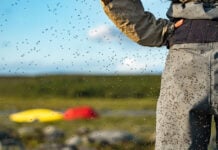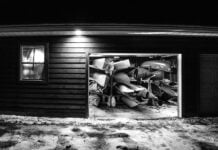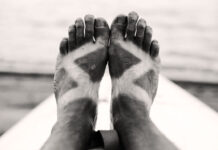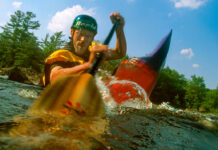No one knew it at the time, but October 16, 2019, would be the last time for more than two years that members of the Revelstoke Paddlesport Association would officially meet for the Wednesday night paddle. No doubt it was raining. It starts raining here in October. And no doubt it was in the public parking lot at the corner of First and Orton. It’s where they’ve always met.
Every Wednesday at 5:30 p.m., cars and trucks arrive with kayaks strapped to them. There are handshakes and high fives. Water levels are discussed. Then boats are untied and stacked on fewer cars heading toward rivers best matching the skills of whoever showed up. Newer paddlers are mentored. Nobody I know remembers who started the Wednesday night paddle. All they know is that it used to be on Tuesdays, but it got moved for some reason no one remembers.
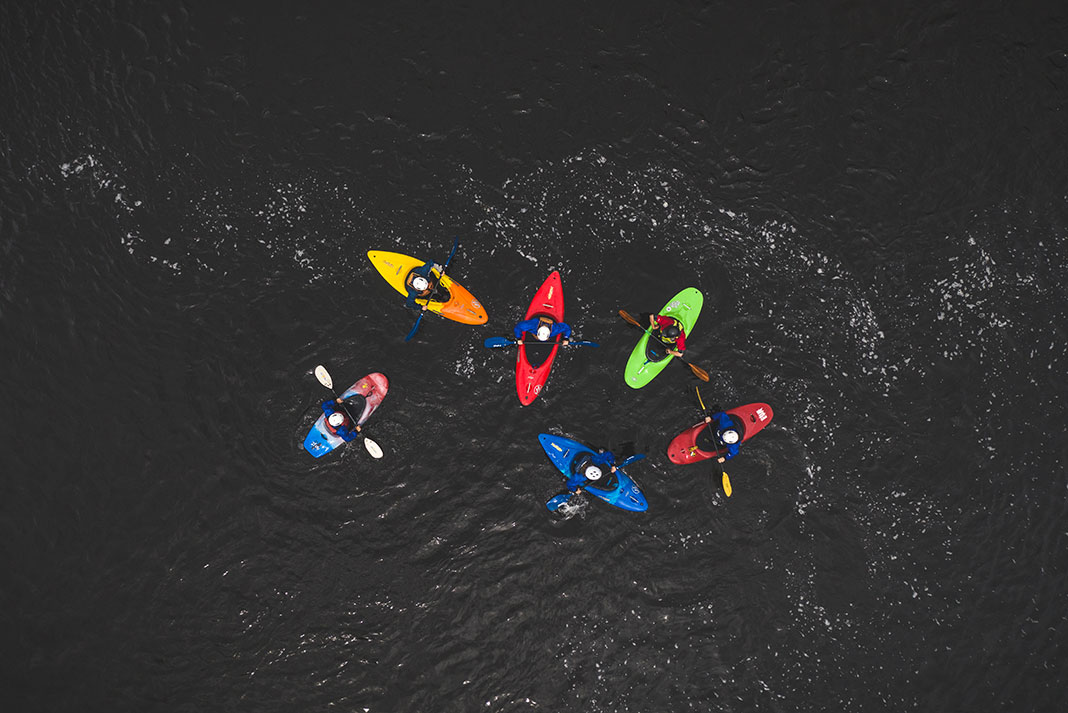
The Corona virus surged around the globe before the snow in the mountains began to drip into our river valleys. Even after the backcountry ban was officially lifted, nobody was shuttling together. Put-ins and launches were busy with small bubble groups. No paddling organization wanted to be caught sanctioning anything social, even an event as loosey-goosey as the weekly Wednesday night paddle.
How to break out of a rut
Lisa Firestone is a clinical psychologist and author. In Psychology Today, she wrote about why it’s important to break routines. Her self-help advice is about breaking bad habits. Like, say, scrolling endlessly through social media or stopping for a bag of Doritos at the corner store. But her advice works both ways.
Firestone suggests first making a list of routines we’re willing to switch up. Only then can we start to take action. The secret, she suggests, is baby steps. Nothing monumental at first. Just mix things up a little, like trying a new restaurant or taking a different route to work. Eventually, we may explore what it would mean to break out of a fixed identity or a role we impose upon ourselves.
Okay, sure. But what if our Wednesday paddle drop-in dirtbag crew is part of our fixed identity and self-imposed role in life? What if we like it? And what if a global pandemic causes the world to lockdown, almost overnight? No baby steps. Cold turkey.
Canoeists, kayakers and paddleboaders everywhere were tossed out of their routines. Most of us struggled to find new things to fill our weekly club paddling nights.
Finding new routines—and rediscovering old ones
Two years is a long time. Long enough to forget fun. Regulars left town, board members retired, and minute books were lost. I bought a television. Annual events and races were mothballed. For two years, if anyone paddled it was with family or those whose Instagram handles we already knew. Small bubbles. I hope we never use the word bubble again. On my first club night this spring, I realized I hadn’t paddled with anyone new in two summers.
Despite a 30 percent growth in paddlesport participation and sales during pandemic lockdowns, gatherings have been slow to recover. Paddling events across the country are coming back online but with lower registrations than before. Wednesday nights in Revelstoke are quieter. There are fewer boats on fewer cars. There’s now more online chatter throughout the day about what rivers. Who’s going? What levels? Who’s driving?
Who cares, I say.
We’re stuck in these new hand-wringing routines of concern, guilt and indecision developed during Covid. Firestone says it’s important to check in with ourselves and see how these new routines make us feel.
The old way was better.
Wednesday nights were a sure thing. You could plan your life around it. Rain or shine. You knew at least one other person would show up. It didn’t matter who. And that was enough. There was no need for Facebook groups. That’s what tailgates are for. “What do y’all wanna paddle tonight?”
Maybe it will take another two years to get back to where we once were. I hope someday soon we feel less anxious about everything. I hope we reconnect with each other and who we really are. I hope we will remember what we enjoy, what matters most to us, and what makes us come alive. When you’re ready, head down to the corner of First and Orton on any given Wednesday. You can figure out the rest from there.
This article was first published in the Early Summer 2022 issue of Paddling Magazine. Subscribe to Paddling Magazine’s print and digital editions, or browse the archives.
Two years is a long time. Long enough to forget fun. But it’s time to get back on the water, find new routines—and rediscover old ones. | Feature photo: Yan Kaczynski



